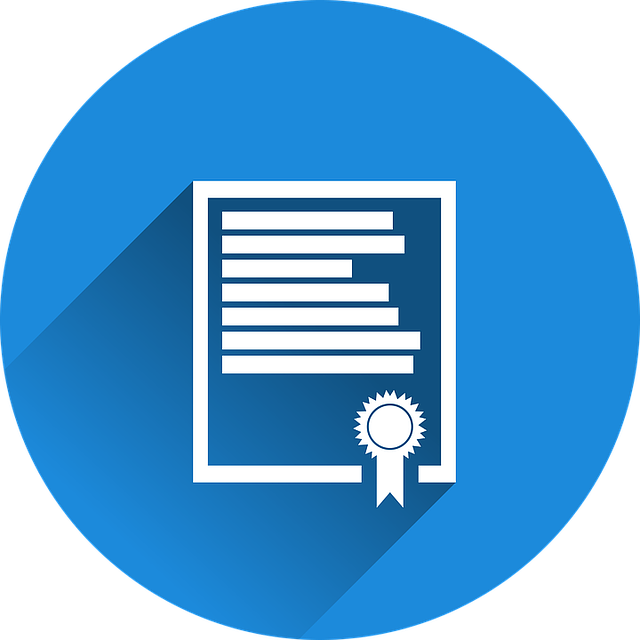Translation services play a pivotal role in ensuring that UK technical proposals and bids meet all necessary regulatory standards when presented in languages other than English. These specialized translation experts are well-versed in the specific regulations of sectors like energy (monitored by Ofgem) and medical devices and pharmaceuticals (regulated by the MHRA), which have become more complex due to Brexit. They must interpret and translate documents in line with frameworks such as the General Product Safety Regulations 2005, Medical Devices Regulation (MDR), In Vitro Diagnostic Regulation (IVDR), and the implications of the Affordable Medicines and Medical Devices Bill. The accuracy and legal compliance of these translations are paramount for international collaboration and participation in UK-based tenders, where information may be needed in various languages. High-caliber translation services for UK Technical Proposals and Bids must therefore combine deep regulatory knowledge with technical expertise to provide precise and legally compliant documents, facilitating successful market presence and partnerships. These services also employ advanced translation memory software to ensure consistency and streamline the process. By leveraging such specialized translation services, businesses can navigate the complexities of the UK's compliance landscape effectively, thereby enhancing their competitiveness on an international scale.
Navigating the complex regulatory environment for UK technical proposals and bids necessitates a thorough understanding of compliance requirements. This article delves into the intricacies of the UK’s compliance landscape, examining pivotal regulatory frameworks that govern technical documentation. It highlights the critical role of professional translation services in ensuring that UK technical proposals and bids meet these standards. Furthermore, it outlines best practices for maintaining compliance when utilizing such services, ensuring your technical communications are clear, accurate, and legally sound.
- Understanding the Compliance Landscape for UK Technical Proposals and Bids
- Key Regulatory Frameworks Governing UK Technical Documents
- The Role of Translation Services in Ensuring Compliance for UK Technical Proposals and Bids
- Best Practices for Maintaining Compliance in UK Technical Proposals and Bids with Translation Services
Understanding the Compliance Landscape for UK Technical Proposals and Bids

When engaging in the UK technical proposals and bids process, it is imperative to navigate the intricate compliance landscape that governs such submissions. Organizations must ensure that their technical proposals align with the specific regulatory frameworks set forth by bodies such as the Office of Gas and Electricity Markets (Ofgem) for energy-related sectors, or the Medicines and Healthcare products Regulatory Agency (MHRA) for medical devices and pharmaceuticals. These regulations are not only critical for legal compliance but also for establishing credibility and trust with potential clients and stakeholders.
Translation services play a pivotal role in this context, offering precision and clarity that is essential for accurate communication of technical proposals and bids. Effective translation from the original technical documentation into clear, regulatory-compliant language ensures that all parties involved—including those who may not have English as their first language—can fully understand the proposal’s content and intent. This is particularly important when dealing with international partners or tendering for UK-based projects where stakeholders may require information in their native tongue. Utilizing specialized translation services for UK Technical Proposals and Bids not only facilitates a smoother compliance process but also opens up opportunities for broader market reach and enhanced collaboration.
Key Regulatory Frameworks Governing UK Technical Documents

When navigating the complex landscape of UK technical proposals, compliance with the relevant regulatory frameworks is paramount to ensure that all documents meet both legal requirements and industry standards. The UK’s withdrawal from the European Union has led to a shift in the regulatory environment, necessitating a clear understanding of domestic legislation. Key among these are the General Product Safety Regulations 2005, which apply to products placed on the market in the UK, ensuring they comply with safety requirements. Additionally, technical documents must align with the Medical Devices Regulation (MDR) and In Vitro Diagnostic Regulation (IVDR), particularly for medical devices and IVDs, which set out strict guidelines on product design, manufacturing processes, and post-market surveillance. For companies offering translation services for UK Technical Proposals and Bids, it is crucial to have a thorough grasp of these regulations to provide accurate and compliant translations that can withstand the scrutiny of regulatory bodies. The Affordable Medicines and Medical Devices Bill also represents a significant development in this area, aiming to promote innovation while safeguarding public health. Translation services must be adept at interpreting not only the written text but also the nuances of these regulations to convey the necessary information effectively. By adhering to these regulatory frameworks, technical documents can facilitate smoother interactions with UK authorities and contribute to the successful market introduction of products and services.
The Role of Translation Services in Ensuring Compliance for UK Technical Proposals and Bids

To navigate the complex landscape of UK technical proposals and bids, leveraging professional translation services is paramount. These services play a pivotal role in ensuring that all documentation aligns with the stringent regulatory standards set forth by bodies such as the Office for Product Safety and Standards (OPSS) and the Medicines and Healthcare products Regulatory Agency (MHRA). Effective communication across languages is essential when engaging with international stakeholders, and translation services provide the accuracy and technical acumen necessary to convey intricate details accurately. By translating UK technical proposals and bids into the target language while maintaining the original intent and context, these services facilitate clear understanding among global partners, thereby mitigating the risk of non-compliance due to misinterpretation or linguistic errors.
Furthermore, translation services for UK Technical Proposals and Bids are equipped with industry-specific glossaries and up-to-date knowledge of legal requirements, which ensures that all translations comply with the necessary regulations. This includes adherence to the General Data Protection Regulation (GDPR) for data protection and the Medical Devices Regulation (MDR) for medical devices. By providing precise and technical translations, these services not only enhance the likelihood of successful proposals and bids but also protect against legal and financial penalties that could arise from non-compliance. With a comprehensive approach to language translation, these experts offer peace of mind for businesses operating within the technical sectors in the UK.
Best Practices for Maintaining Compliance in UK Technical Proposals and Bids with Translation Services

To ensure that UK technical proposals and bids remain compliant with regulations when translated into different languages, it is imperative to leverage specialized translation services. These services should be well-versed in both the technical jargon inherent to such documents and the nuances of legal compliance within the UK. One of the best practices is to select a translation service provider that offers native speakers as translators for the target audience, guaranteeing not only linguistic accuracy but also cultural relevance. This approach mitigates the risk of misinterpretation or errors that could lead to non-compliance or misunderstandings in international bids. Additionally, employing a certified translator with expertise in your industry can provide an extra layer of assurance that all technical terms and regulatory requirements are accurately conveyed.
Furthermore, maintaining compliance involves a continuous process beyond the initial translation. It is advisable to implement a quality assurance protocol where translated documents undergo a second review by a proofreader or a subject matter expert. This step ensures that the technical content adheres to both the source and target regulatory standards. Using translation memory software can also streamline this process, as it stores previously translated content for consistency across multiple documents. By integrating these best practices, UK companies can enhance their proposals’ clarity, accuracy, and compliance, thereby increasing their chances of successful bids in a global marketplace.
When navigating the complex regulatory environment surrounding UK technical proposals and bids, it is imperative to leverage professional translation services. These services not only facilitate clear communication across different languages but also ensure adherence to the stringent compliance requirements set forth by relevant UK frameworks. By integrating best practices for compliance within translations, organizations can confidently present their technical documents with the assurance of accuracy and regulatory alignment. In essence, the judicious use of specialized translation services is a critical component in the successful submission of UK technical proposals and bids.
